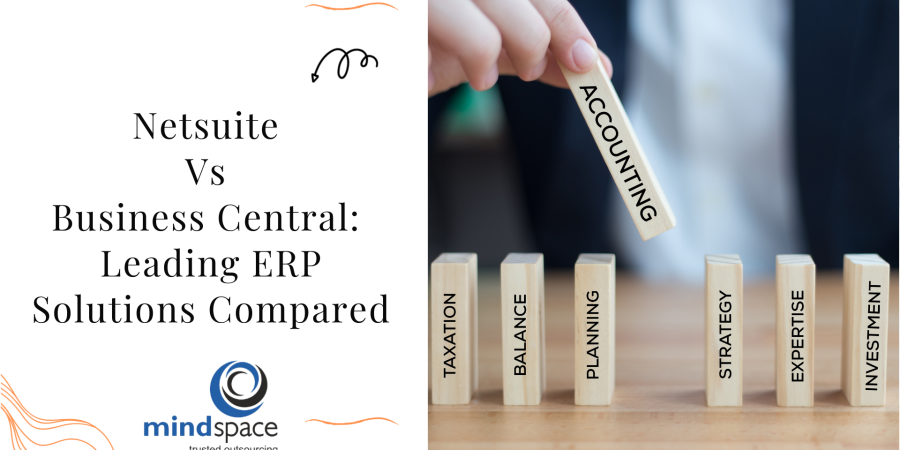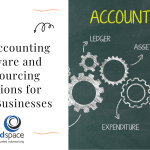Netsuite Vs Business Central: Leading ERP Solutions Compared
In today’s competitive business landscape, selecting the right ERP (Enterprise Resource Planning) solution is crucial for organizations aiming to streamline operations, enhance efficiency, and drive growth. NetSuite and Microsoft Dynamics 365 Business Central are two prominent ERP platforms catering to businesses of varying sizes and industries. This comparison aims to provide a comprehensive analysis of their features, functionalities, strengths, and suitability for different business needs.
Overview of NetSuite
NetSuite, now a part of Oracle, is a cloud-based ERP system renowned for its comprehensive suite of applications designed to manage financials, customer relationships, eCommerce, and more. It offers a unified platform that integrates various business functions into a single system, providing real-time visibility and control over operations.
Key Features of NetSuite:
- Financial Management: Includes capabilities for general ledger, accounts receivable/payable, budgeting, and financial reporting.
- Customer Relationship Management (CRM): Manages customer interactions, sales force automation, and marketing campaigns.
- Inventory and Supply Chain Management: Handles inventory control, procurement, order management, and demand planning.
- eCommerce: Supports online stores with features for order management, shopping cart integration, and customer support.
- Analytics and Reporting: Provides robust reporting tools, dashboards, and analytics for informed decision-making.
- Customization and Scalability: Offers flexibility through customization options and scalability to accommodate business growth.
Overview of Microsoft Dynamics 365 Business Central
Microsoft Dynamics 365 Business Central is a cloud-based ERP solution designed for small to medium-sized enterprises (SMEs). It integrates with other Microsoft products such as Office 365 and provides a comprehensive suite of applications to manage finances, operations, sales, and customer service.
Key Features of Business Central:
- Financial Management: Manages general ledger, accounts receivable/payable, cash flow forecasting, and fixed assets.
- Supply Chain Management: Handles inventory, purchasing, order management, and warehouse management.
- Sales and Service Management: Tracks sales opportunities, manages customer relationships, and handles service requests.
- Project Management: Allows for project planning, resource management, and time tracking.
- Reporting and Analytics: Provide insights through built-in reports, dashboards, and Power BI integration.
- Integration with Microsoft Products: Seamless integration with Office 365, Power Platform, and other Microsoft tools.
Comparison of Features and Functionality
- Deployment and Accessibility:
– NetSuite: Fully cloud-based, accessible from anywhere with internet connectivity. Offers flexibility and scalability without the need for on-premises infrastructure.
– Business Central: Also cloud-based, integrates tightly with Microsoft’s ecosystem, offering familiar interfaces and seamless integration with Office 365.
- Customization and Flexibility:
– NetSuite: Highly customizable with SuiteScript (JavaScript-based scripting language) and SuiteBuilder tools. Provides extensive flexibility but may require more technical expertise for customization.
– Business Central: Customizable through Extensions and AppSource, allowing businesses to extend functionality without altering the core system. Offers a balance between customization and ease of maintenance.
- Financial Management:
– NetSuite: Comprehensive financial management capabilities with strong reporting and analytics tools. Suitable for complex financial needs and multi-entity businesses.
– Business Central: Robust financial management features including multi-currency, fixed assets, and budgeting. It is well-suited for smaller organizations with straightforward financial requirements.
- Industry-Specific Functionality:
– NetSuite: Offers industry-specific editions and modules tailored to manufacturing, retail, and services sectors. Provides deeper functionality for specialized industries.
– Business Central: Also supports various industries but may require additional extensions or customization for specific needs not covered by standard functionalities.
- Integration and Ecosystem:
– NetSuite: Integrates with third-party applications through Suite Cloud, supporting various integrations with CRM, eCommerce, and other business systems.
– Business Central: Strong integration capabilities within the Microsoft ecosystem, including seamless integration with Office 365, Power BI, and Azure services.
- Scalability and Global Reach:
– NetSuite: Known for its scalability, supporting businesses ranging from small startups to large enterprises with global operations.
– Business Central: Scalable solution suitable for growing SMEs, offering capabilities to support international business operations with multi-language and multi-currency support.
Conclusion
Choosing between NetSuite and Microsoft Dynamics 365 Business Central depends largely on the specific needs, size, and industry of your organization. NetSuite offers extensive customization, scalability, and industry-specific solutions, making it ideal for larger enterprises with complex requirements. On the other hand, Business Central provides seamless integration with Microsoft products, ease of use, and affordability, making it a strong contender for SMEs looking to leverage existing Microsoft investments.
Ultimately, the decision should be based on a thorough assessment of your business requirements, desired functionalities, budget considerations, and long-term growth strategy. Both NetSuite and Business Central offer robust ERP solutions capable of driving efficiency, growth, and competitiveness in today’s dynamic business environment.


